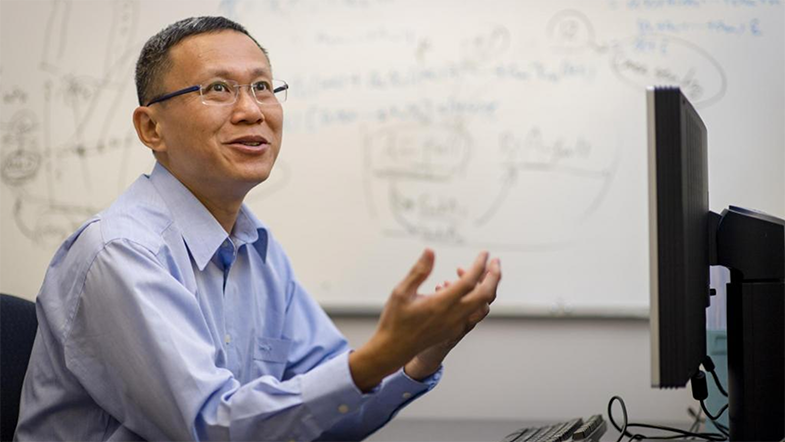Big data to change our world

Sponsored by

Big data to change our world
Jian Pei is a Simon Fraser University computing science professor and one of the world’s leading researchers in data science, data mining and big data. Pei dedicates his work to finding patterns within datasets and developing algorithms to understand data from different angles, which can then be used to build business intelligence tools.
“I help enterprises turn data into assets, to give them a unique competitive edge,” he says.
Pei was named a 2019 Royal Society of Canada Fellow—the nation’s highest academic honour—and is among Canada’s top 10 most cited authors in the areas of computer science and electronics. He has received over 87,000 citations from his peers, a reflection of his expertise and recognition in the field.
“I am interested in solving data intensive applications and challenges,” says Pei. “My research is driven by developing scalable techniques for data intensive applications, and also I want to go beyond that to use data to change the world. For that, some factors beyond the technical scope need to be considered.”
This outlook is evident in the projects that Pei has taken on in recent years.
For example, Pei is a leading big data researcher who has partnered with Pacific Blue Cross to help improve healthcare delivery, decision-making and outcomes.
“When using data science and artificial intelligence in decision-making, we can improve the quality of life,” he explains. “We can improve patient transfer, recovery and long-term disability.”
He also worked with a Chinese beer company to optimize their marketing and supply chain strategies during the 2018 World Cup by analyzing the available data. Pei notes that the increase in sales is not the only goal—he is also interested in helping businesses use data to incorporate more sustainable practices.
“If the supply chain is more efficient, we can reduce the environmental impact by improving the manufacturing and shipping processes,” he says.
Pei also uses data for social good by helping small businesses gain competencies in a fierce market often dominated by larger businesses. For example, he studied the supply and demand patterns in a region, and set up a system that helps small stores to share stocks and supplies when items go out of stock. With these tools, Pei encouraged small businesses to collaborate with one another in order to compete with major chains.
“I always want things to be fair,” says Pei.
His attention to making things fair stretches beyond commercial competition—he stresses the importance of considering ethics in his research, and ensures that privacy of data owners and contributors is respected.
“If data is used the right way, we can build a fair world. If not used properly, the consequences can be harder to reverse.”
In order to accurately understand complex datasets and build better business tools for all consumers a diverse group of data scientists is needed. That is why Pei looks for students with diverse backgrounds—and not necessarily a computer science background—and leads a research group that has 40-50% female researchers. He has graduated many successful students throughout his time as a professor at SFU, who are now leading their own teams in industry and academia.
“We live in the age of data, but most of it is being wasted,” says Pei. “I research data for good because data is changing the world, and data is also changing us.”
Simon Fraser University’s School of Computing Science is mobilizing brilliant minds to create business and societal innovation for good. For more information, visit sfu.ca/csresearch.

